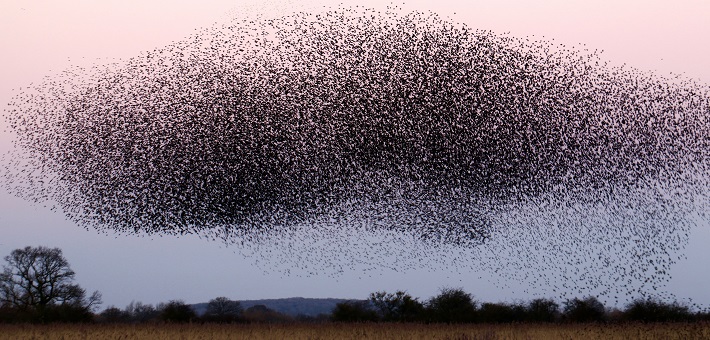Commentary on Acts 2:1-4; 1 Corinthians 12:1-13
This Sunday symbolizes simultaneously beginnings and endings. It is a fulcrum that turns around the movement from life to death to new life. Pentecost is traditionally celebrated as a beginning, the “birthday of the church,” with colorful red clothing, yellow and orange construction paper tongues of fire, bright balloons, and waving banners. It’s a birthday party!
The text relays that all those gathered together in one place were filled by the Holy Spirit, and it is this Spirit who gives them the ability to speak in other languages (Acts 2:4). In some congregations Pentecost is an occasion to celebrate the many languages through which the Holy Spirit communicates through bilingual services or the presentation of readings in more than one language.
Pentecost is in so many ways the powerful, Spirit-filled celebration of the new life of the church. But it is one that is predicated on an ending, a death.
Namely, the tortured, violent ending of the life of a Jewish peasant who dared to cast a vision of the reign of God animated by love and justice—one different from the ruling powers and principalities of his day.
While it is easy to read Jesus’ death on the cross as a singular event, crucifixion was a common form of imperial capital punishment reserved for the lowest of the low: slaves, outcasts, criminals, and insurrectionists. That Jesus’ death breaks the power not just of his own cross, but of those of every time and place, points to where God creates a way out of no way in every seemingly dead and destitute corner of our lives and the world.
New life is not possible without death. Jesus’ death points to how the powers of oppression and empire symbolized in the cross do not have the final say. The forces of death do not win. That a “nobody” it executed is now alive and ascended on a cloud is decidedly a problem for an empire that believes it controls the entire known world.
So while Pentecost should indeed be a joy-filled celebration of beginning and new life, it hangs in tension with endings and death. There is an invitation to reflect on these tensions, not only within the biblical text, but within the larger “text” of congregational life. The texts that are read on this Sunday reflect the end of a cycle in the Narrative Lectionary.
There is an occasion with this Sunday to reflect on how far the congregation has come since the reading of the story of the Garden of Eden the previous fall. The congregation has traced the arc from the creation of the world, through God’s promises to the people of Israel, to the fulfillment of those promises in the death and resurrection of Jesus the Christ, and the living out of those promises in faithfulness to Christ among the leaders of the earliest churches.
Within the construct of the Narrative Lectionary, this Sunday is also simultaneously an ending that may intersect with many other markers of transition in the life of the community: the end of the program year for the church’s faith formation activities, the end of education with graduations ranging from preschool to college and beyond, and the end of the hustle and bustle of the school year with a shift into the slower rhythms of summer when many take vacation.
How are these endings in the life of the congregation, these “deaths” to one way of being, one form of identity, also an invitation into new life and new beginnings?
In beginnings like the one Pentecost represents, it is easy to feel the hope of something new, to be inspired (from the Latin inspirare, “breathe into”) by the Spirit to work for the common good. But these heady ideals can quickly wane in the face of the failures, mishaps, and downright shenanigans described not only throughout the pages of the Bible but also in our own lives.
What might be the call into holding a gentle tension between beginnings and endings? To see these “already and not yet” moments as both hope-filled for what is next and grounded in the realities of the everyday?
The pairing of the movement of the Spirit at Pentecost in Acts 2 with the gifts of the Spirit in 1 Corinthians 12 becomes an entry point for making these connections between the already-promised coming of the Holy Spirit and how that Spirit enlivens the work of the church today. Each gift is a “manifestation of the Spirit for the common good” (1 Corinthians 12:7).
While it may be tempting to preach that some are called to be ushers, some greeters, and some assisting ministers as giftings of the Spirit, reflecting the everyday volunteer needs of a particular church, this passage is much broader in scope.
This one body of Christ with many members animated by the gifts of the Spirit upends the very hierarchies—Jew or Greek, slave or free—that would divide it. This body of Christ is the embodiment of the promise that death does not win, made good on the cross.
Finally, the gospel reading appointed for this Sunday is also a beginning, yet simultaneously an ending. The appearance of John the Baptizer in the wilderness proclaiming, “The one more powerful than I is coming after me” (Mark 1:7) is immediately followed by the baptism of Jesus from Nazareth of Galilee in the Jordan (Mark 1:9).
The ending of Mark calls listeners right back to this beginning. Having entered the tomb, Mary Magdalene and Mary the mother of James, and Salome see a young man clothed in a white robe (16:5) who says, “Jesus the Nazarene, the one having been crucified, has been raised. Tell his disciples and Peter that he goes ahead of you into Galilee” (16:6–7). This abrupt ending in Mark is a continuous call back to where it began.
Each of the beginnings and endings of this Sunday is an invitation into the great cosmic spiral of life, death, and life beyond death. They are calls to faith that in the death of Jesus there is the resurrection of his collective body, the church.
May the preaching and receiving of the Word for this and every Sunday be as Spirit-filled as it was on that Pentecost.
PRAYER OF THE DAY
Spirit of fire, your holy presence burns bright within this world. Spread your spirit throughout our communities, so that our hearts may burn with love and hope. Amen.
HYMNS
Like the murmur of the dove’s song ELW 403, GG 285, H82 513, UMH 544, NCH 270
Spirit of God, descend upon my heart ELW 800, GG 688, UMH 500, NCH 290
Spirit of the living God, fall afresh on me GG 288, UMH 393, NCH 283, TFF 101
CHORAL
Go out with joy, Hank Beebe


May 19, 2024